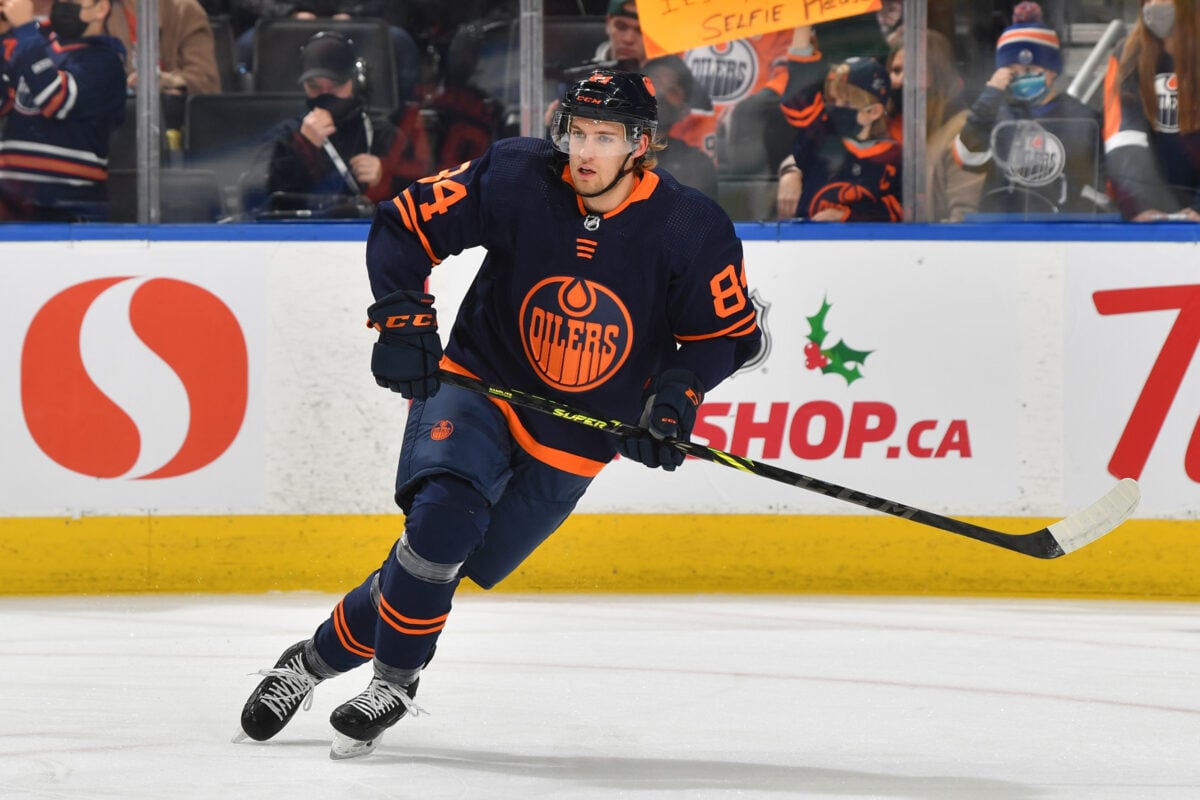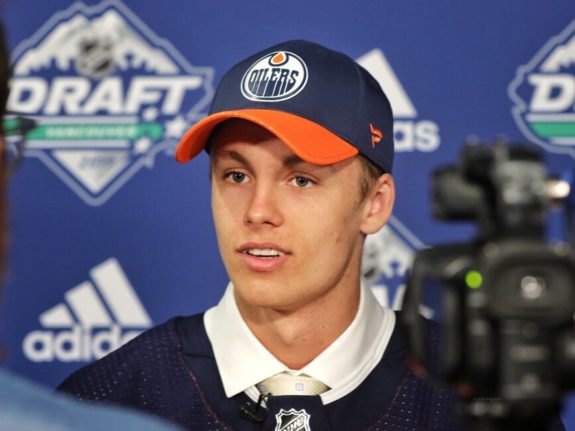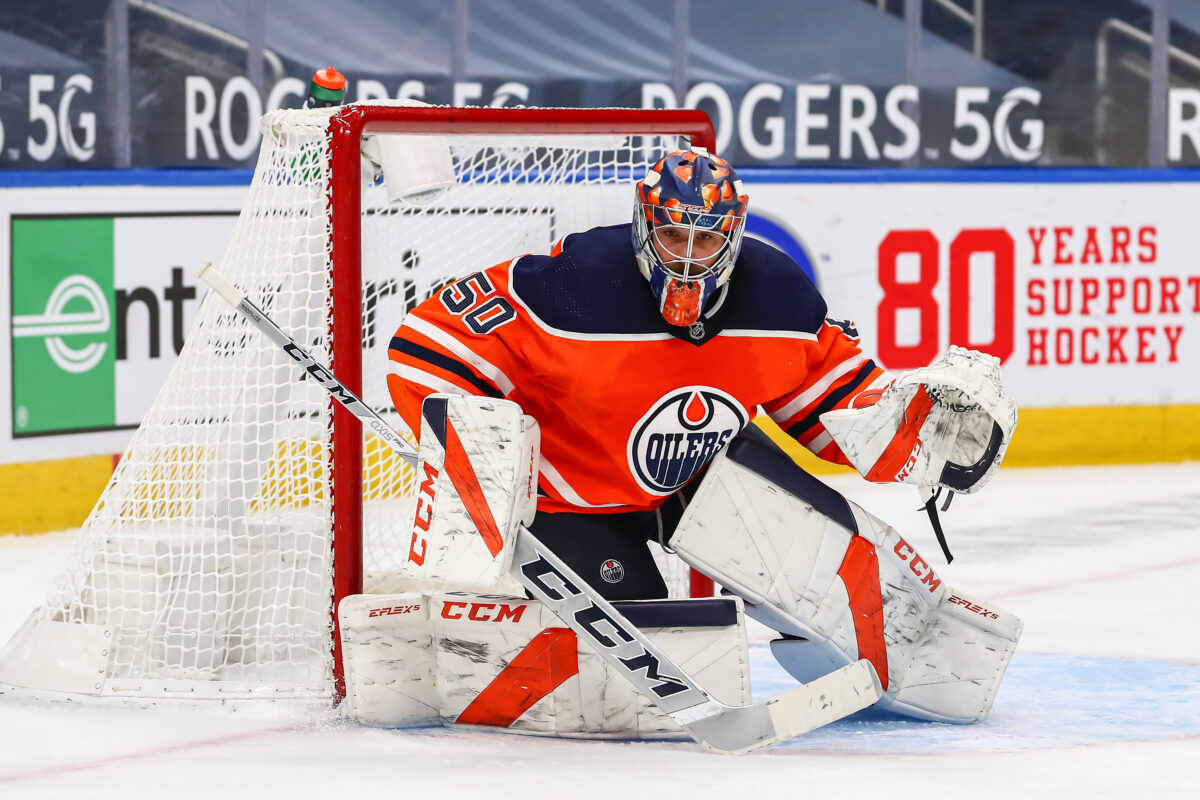In an attempt to prevent more postponements of games and progress the season forward, the NHL announced before hockey returned from the pause that they were bringing back the taxi squad for every team.
The taxi squad can consist of up to six players, allowing a team to have enough players in case any of their regulars enter COVID protocol. For purposes of salary cap, players on the taxi squad will be counted as being in the minors. A player can’t spend more than 20 consecutive days on the taxi squad. They have to either be called up to be on the active roster or sent back down to play in the American Hockey League (AHL). This is a fair rule because it allows certain players who would just stay on the taxi squad to get games in, whether it’s in the NHL or AHL in between stints.
Along with the taxi squad being re-implemented, there are a few changes that benefit each team in regards to emergency callups. Teams are allowed to call-up players on an emergency basis if they make no more than $1 million, an increase from the previous $850,000. This will give more wiggle room and allow teams much more flexibility if it comes to that. An issue that has arisen in the past is goaltenders that have not been able to be called up on an emergency basis due to that $150,000 difference. Now we may even see more players on entry-level contracts get a game or two. An emergency call-up doesn’t count towards the team’s salary cap for the first two games if the team is still short players.
Related: Oilers Should Trade for Ullmark if Rask Signs With Bruins
Now that we’ve gone over exactly how the taxi squad and emergency call-up situation is going to work this season, let’s take a look at how the Edmonton Oilers can best utilize it for themselves and the development of their players.
Which Oilers Will Be Best Suited for the Taxi Squad?
When the Oilers were able to add players to their taxi squad, they were in an odd position. Instead of adding six players initially, they elected to just call up Philip Broberg and Ilya Konovalov. The reason being that three more players were going to be coming off COVID protocol after their game in St. Louis.
I would look at taxi squads as holding players who have had a lot of games in the minors and may be on the cusp of breaking into the NHL or expendable players who they don’t see as part of the team’s future. Below I will break down who falls into which category.
Lagesson Doesn’t Fit in the Oilers’ Plans
With Jesse Puljujarvi, Darnell Nurse, and William Lagesson being available for the Oilers’ next game against the New Jersey Devils — and Zack Kassian soon after — they are going to have to make moves to hold a maximum of 23 men on the roster. Not every team always has 23 players on the roster, and the implementation of the taxi squad could see fewer teams hold a full roster at all times.
The most likely player to now be added to the taxi squad is Lagesson. He started out the season with the Bakersfield Condors in the American Hockey League (AHL) and has gotten into just seven games with the Oilers this season. The Oilers’ left defence should look something like Nurse, Duncan Keith, and Slater Koekkoek right now, but Lagesson has the chance of sticking around on the main roster until either Markus Niemelainen or Kris Russell return from injury. That is, if the team elects to carry seven defence when there isn’t much of a chance Lagesson gets playing time over any of the three defencemen I mentioned in the lineup.

Possibly the most expendable of the defencemen who are able to play games at an NHL level is Lagesson. He is on the last year of his contract and is set to become a restricted free agent after the season. With the number of young and skilled defencemen the Oilers have, he will most likely be playing for a different organization to give him a better shot at an NHL career.
Which Depth Forward is Sent to Taxi Squad?
Once Kassian is back in the lineup, the Oilers will have 15 forwards. That means they will have to make a decision on who they are going to send to the taxi squad. Though Tyler Benson has played the fewest number of games from Oilers’ forwards other than Devin Shore — who has spent time on the injured reserve and COVID-protocol — the team will likely keep him around.
The decision will likely come down to Kyle Turris, Brendan Perlini, and Tyler Benson, but I can see either of the first two options being elected. Turris is the most expendable and the Oilers should even be trying to move him out by the trade deadline to free up space. All of them would have to pass through waivers in order to be assigned to the taxi squad. If the Oilers haven’t sent Benson down yet, I see them playing out the season with him as an NHL extra and seeing if there is any more progression in his development before a decision needs to be made.
You may also like:
- Oilers’ Knoblauch Doing No Favours for Tristan Jarry’s Confidence
- NHL Rumors: Myers Update, Maple Leafs Soft Sell, and Oilers Getting Ekman-Larsson?
- 4 Takeaways From Oilers’ 8-1 Win Over Kings
- NHL Morning Recap – February 27, 2026
- Report Suggests Maple Leafs Rejected Trade Offer from Oilers
Something to keep in mind is that both Turris and Perlini have been placed on waivers this season at one point and have made it through, so there’s no harm in doing so again to free up a spot. In an event of a roster spot opening up, whoever is sent down in the coming days would likely be the next call-up.
The Use of Broberg & Konovalov on the Taxi Squad
As far as the choice to call up Broberg to the taxi squad, I think the Oilers believe he has played very well in the 15 games he has gotten into in the AHL and would benefit from spending a bit more time with the NHL players, so he’s more prepared next time he gets the call.

As for Konovalov, he’s split time with Oliver Rodrigue in the AHL, playing better but still not great. He’s not likely to get any time in net for the Oilers, but the time seeing shots in practice daily from NHLers should help his development. Konovalov is also two years older than Rodrigue, and further along in his development.
Players Who Could Round Out the Taxi Squad
The Oilers don’t have to have six players on their taxi squad with the new rules regarding emergency call-ups. But if they do, there are two more players who saw action in the NHL that would be the obvious choices to round out the taxi squad: Cooper Marody and Seth Griffith. They each had solid outings in their first game with the Oilers this season when COVID struck before the break. They each only played one game, then the cross-border games were postponed and the Oilers got an extended time off.
The reason the Oilers could elect to keep at least one of these players in the AHL is because they don’t want to take away too many of Bakersfield’s assets. I don’t see Griffith getting a real shot with the Oilers in the NHL, but Marody has been a very good AHL player and could get a better look next season. To get Marody more NHL-ready, he could be the choice, but they will probably just add Griffith to the taxi squad to be safe.
Looking at it from another angle, players in Bakersfield could benefit greatly from the increased roles with the team if the top-line guys are elevated to the taxi squad.
Oilers’ Prospects Who Will Benefit From Playing in the AHL
Dmitry Samorukov struggled and was sat after being too aggressive and costing the Oilers two goals. He has since been sent back down to Bakersfield. The Oilers chose this rather than keeping him around and allowing him to practice with more NHL talent and learn how to better defend. The better decision was made in sending him down so he would be able to focus on how he plays defence 1-on-1 or 2-on-2 and to correct the mistakes he made in his first game.
Either way, he is not playing for the Oilers in the near future unless absolutely necessary after his performance in his first NHL appearance. Yes, he was thrown to the wolves immediately and it was unfortunate that Edmonton rushed him into NHL action due to all their defencemen being unavailable.
After finally activating Mike Smith off the injured reserve, the Oilers sent Stuart Skinner down to the AHL instead of assigning him to the taxi squad. It makes a lot of sense since they want him to get game action, as he was playing well in his most recent starts with the Oilers. In the event that either of the Oilers’ goaltenders go down for any amount of time, you can bet Skinner will get the call back up to the NHL.

The taxi squad will be in effect until the All-Star break, so there is lots of time to allow some of their talent to get practice time with NHL players and to manage their situation moving forward. Hopefully, the effects of COVID will die down before then and things can start to get back to a normal-looking NHL.